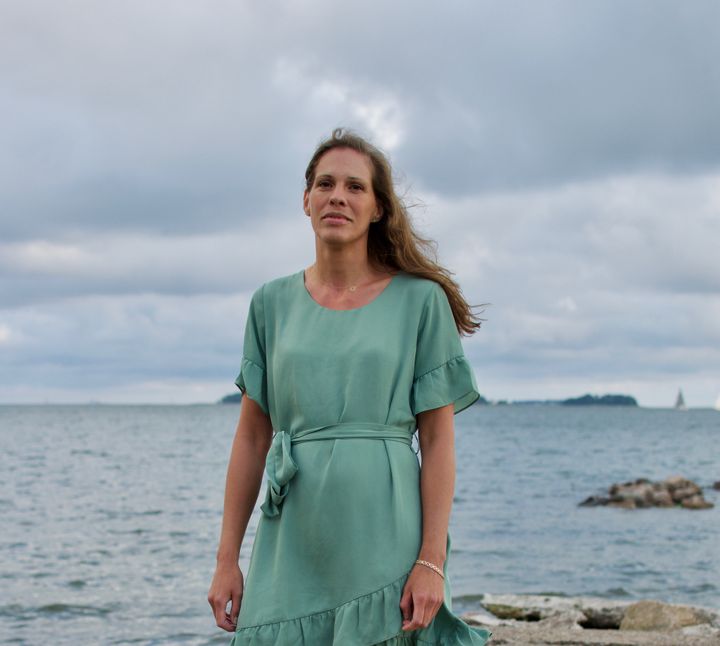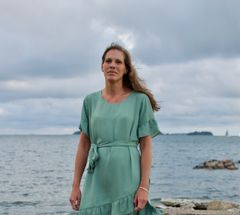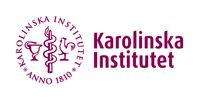Hormonal therapy has a long-term effect in breast cancer
Researchers at Karolinska Institutet in Sweden have investigated the long-term effect of hormonal therapy in women with the most common types of hormone-sensitive breast cancer. The results, presented in the journal JAMA Oncology, show that the treatment has a protective effect against distant metastatic cancer for both so-called Luminal A and Luminal B breast cancer subtypes, and a long-term effect for women diagnosed with Luminal A cancer.

Estrogen receptor-positive (hormone sensitive) breast cancer is the most common form of breast cancer and means that the tumor grows in response to the female hormone estrogen. Women who develop this form of breast cancer have a long-term risk of distant metastatic spread of the disease and dying from breast cancer. There is however insufficient knowledge of how biological factors in the tumor and hormonal therapy affect this long-term risk.
Researchers at Karolinska Institutet have now investigated the long-term effect of hormonal therapy in women with the two most common types of estrogen receptor-positive breast cancer. The researchers analyzed long-term data with follow-up for at least 20 years for patients in the Stockholm Tamoxifen trial (STO-3) randomised to receive either tamoxifen treatment or no hormonal therapy. In summary, 336 women were diagnosed with so-called Luminal A breast cancer subtype and 126 women with Luminal B subtype.
The results show that patients with Luminal A breast cancer had a relatively small but prolonged risk increase for metastatic cancer, and that tamoxifen treatment significantly reduced this risk for as long as 15 years after diagnosis. Patients with Luminal B subtype were at high risk for metastatic breast cancer during the first five years after diagnosis. In these patients, tamoxifen treatment led to a significantly reduced risk during the first five years, but after that the protective effect of hormonal therapy decreased.
"Our conclusion is that tamoxifen treatment is beneficial for both groups of patients, but that it has a long-term protective effect for patients with Luminal A breast cancer”, says Dr Linda Lindström, a research group leader at Karolinska Institutet's Department of Biosciences and Nutrition, who coordinated the study. ”Patients with Luminal B breast cancer should also be offered hormonal therapy, and our results show a reduced risk of metastatic disease during the first years when the risk is the highest for these patients. We will now proceed to investigate the long-term benefits of hormonal therapy in patients with Luminal A and Luminal B subtype who have been diagnosed with larger and aggressive tumours with spread to the lymph nodes.”
The study was funded by the Swedish Research Council, Forte, the Gösta Milton Donation Foundation, the California Breast Cancer Research Program Award, Iris, Stig and Gerry Castenbäck's Foundation for Cancer Research and King Gustaf V's Jubilee Foundation from Radiumhemmet Research Foundation. Co-author Laura van't Veer holds a patent for ”Mammaprint 70-gene risk signature" and is co-founder, shareholder and part-time employee at Agendia.
Publication: 'Assessment of Long-term Survival and Benefit from Tamoxifen Therapy in Patients with Luminal A or Luminal B Breast Cancer'. Nancy Y. Yu, Adina Iftimi, Christina Yau, Nicholas P. Tobin, Laura van't Veer, Katherine A. Hoadley, Christopher C. Benz, Bo Nordenskjöld, Tommy Fornander, Olle Stål, Kamila Czene, Laura J. Esserman, Linda S. Lindström. JAMA Oncology, online 8 August 2019, doi: 10.1001/Jamaoncol. 2019.1856.
Contacts
For additional information, please contact:
Linda Lindström, PhD, Associate Professor, research group leader
Department of Biosciences and Nutrition, Karolinska Institutet
Phone: +46 (0)8 524 881 17
Mobile: +46 (0)72-536 5018
E-mail: linda.lindstrom@ki.se
To contact the KI Press Office go to ki.se/pressroom
Images

Karolinska Institutet (http://ki.se/english) is one of the world’s leading medical universities. Our vision is to advance knowledge about life and strive towards better health for all. Karolinska Institutet accounts for the single largest share of all academic medical research conducted in Sweden and offers the country’s broadest range of education in medicine and health sciences. The Nobel Assembly at Karolinska Institutet selects the Nobel laureates in Physiology or Medicine.
Subscribe to releases from Karolinska Institutet - English
Subscribe to all the latest releases from Karolinska Institutet - English by registering your e-mail address below. You can unsubscribe at any time.
Latest releases from Karolinska Institutet - English
Fluoride in drinking water is associated with impaired childhood cognition7.3.2025 15:30:00 CET | Pressmeddelande
Elevated concentrations of fluoride can occur in well water, and in some countries, it is added to drinking water to counteract caries in the population. A study from Karolinska Institutet in Sweden now supports a few previous studies indicating that exposure to fluoride during the fetal stage or early childhood may impair cognition in children. The study is published in the journal Environmental Health Perspectives.
Children with ARFID face increased risk of disease17.2.2025 17:00:00 CET | Pressmeddelande
Children with avoidant restrictive food intake disorder (ARFID) have an elevated risk of developing psychiatric and physical conditions, a new study from Karolinska Institutet published in JAMA Pediatrics reports. The study highlights the importance of early identification to improve care of these children.
Preterm babies receive insufficient pain management27.1.2025 15:29:17 CET | Pressmeddelande
A large proportion of babies born very early need intensive care, which can be painful. But the healthcare system fails to provide pain relief to the full extent. This is shown by the largest survey to date of pain in neonatal care, now published in the journal Pain.
New study paves way for immunotherapies tailored for childhood cancers20.1.2025 17:00:00 CET | Pressmeddelande
Researchers at Karolinska Institutet and the Astrid Lindgren Children’s Hospital in Sweden have determined how children’s immune systems react to different kinds of cancer depending on their age. The study, which is published in the journal Cell, reveals significant differences between the immune response of children and adults, and has the potential to lead to new tailored treatments for children with cancer.
AI can improve ovarian cancer diagnoses2.1.2025 11:00:00 CET | Pressmeddelande
A new international study led by researchers at Karolinska Institutet in Sweden shows that AI-based models can outperform human experts at identifying ovarian cancer in ultrasound images. The study is published in Nature Medicine.
In our pressroom you can read all our latest releases, find our press contacts, images, documents and other relevant information about us.
Visit our pressroom